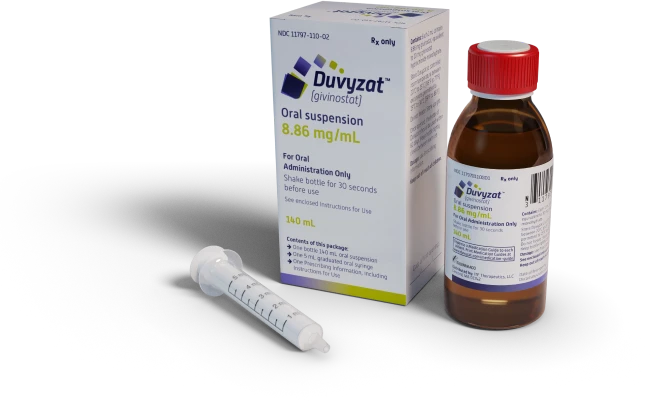Twice-daily dosing
How to take DUVYZAT

- DUVYZAT is a liquid medicine that can be taken at home, twice a day
- The starting dose for DUVYZAT is based on weight



Establish a daily routine with DUVYZAT
The three S's of success:
-
Same time
(morning and night)
-
Set dose reminders
-
Snack on!
(can be taken with food)
What to expect when starting DUVYZAT
Before starting DUVYZAT, your healthcare provider will perform some tests. These will include a blood test to check levels of platelets (tiny cell fragments that help blood clot) and triglycerides (a type of fat in your blood).
Your healthcare provider may also order an electrocardiogram (ECG). This is a simple test that checks how the heart is beating. This test is done if you or your loved one have an underlying heart condition or are taking medicines that might affect heart rhythm.

Regular testing with DUVYZAT
Once you have started taking DUVYZAT, your healthcare provider will closely monitor your health through regular blood tests. This will allow your healthcare team to ensure DUVYZAT is working as expected. If side effects occur, contact your healthcare provider.
Blood tests you can expect after starting DUVYZAT:
- Blood cell count (complete blood count [CBC] + differential) to check the levels of different types of cells in your blood
- Triglycerides to check the level of a type of fat in your blood
Monitoring schedule
| Month | 1* | 2* | 3 | 4 | 5 | 6 | 7 | 8 | 9 | 10 | 11 | 12 |
|---|---|---|---|---|---|---|---|---|---|---|---|---|
| Blood test |

|

|
|
|
|
|
